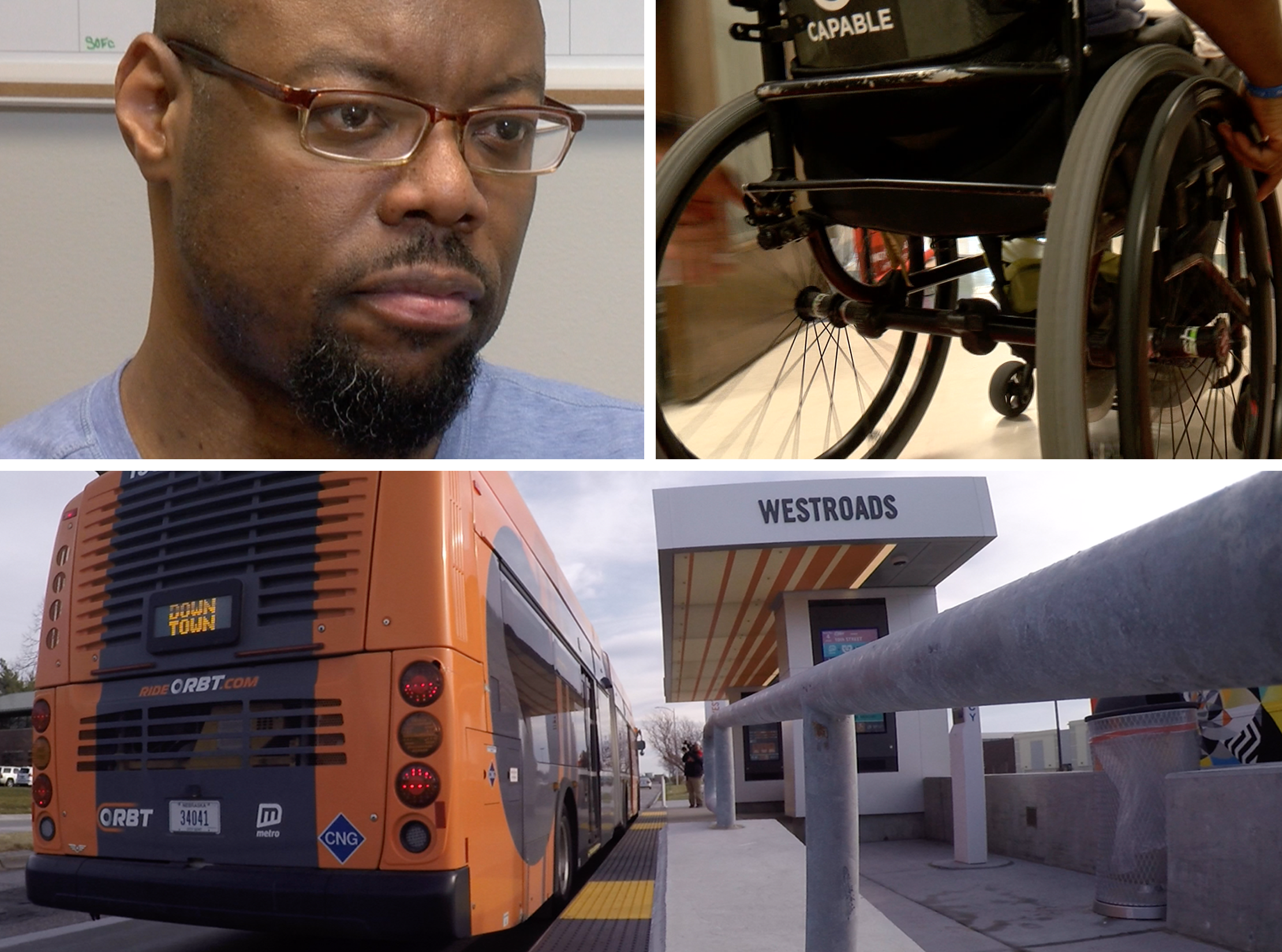Thousands of Omahans rely on the bus, including many with disabilities.
But several say they are frustrated after having trouble using some bus tickets — including those distributed by social service agencies.
Their complaints center on how old paper tickets work with Omaha’s new rapid bus system, ORBT, which shuttles people down Dodge Street.
The problem: ORBT buses use a new electronic payment system, Umo, that scans a plastic card or a QR code from a cell phone for payment. Older paper cards that work on regular buses won’t scan.
Riders say some bus drivers don’t accept paper passes to ride ORBT. Metro leaders say those tickets should be accepted, but they’re open to exchanging the paper tickets to avoid confusion.
That exchange is causing confusion and frustration of its own.
The problem may well be temporary: Metro vendors and service providers say they are now distributing bus passes that easily work with ORBT. In the meantime, some people who need the Omaha rapid bus have found themselves left behind as their bus literally pulls away.
YMCA fitness trainer Jabari Wright is one such bus rider. He shared his experience with 3 News Now Investigators and the Flatwater Free Press.
Most work days, Wright wheels himself to a downtown bus stop by 6 a.m. He rides an ORBT bus down Dodge Street to Crossroads Mall. From there, he catches a second bus to 72nd and Maple Streets.
He then wheels himself west down the hill to the Maple Street YMCA, where he aims to arrive before his 9 a.m. shift “to settle in, check my emails and drink my coffee.”
“I literally use the bus every day to get back and forth to work, various appointments at the VA,” he said. “I usually go over to where my kids live and then we, you know, shuffle on down to the school.”
He loves ORBT’s speed: The rapid service helped cut his commute time by an hour, he said. But the paper bus ticket he has received monthly because of his disability hasn’t always worked on the new bus service.
After ORBT started charging fares for the service in November, some drivers told him he couldn’t ride with his paper pass.
He got left at the curb. For him, that meant a mad scramble to find someone who could carry his wheelchair in a vehicle. Others shared similar stories with local transportation advocates.
“I got denied, and depending on the driver, I was able to get on one bus, but the next driver didn’t allow it,” he said. “I ended up having to actually call a Lyft ride to get where I needed to be.”
Metro Transit CEO Lauren Cencic said drivers should honor all paper tickets and acknowledged that a driver might have been confused about the policy.
“Anybody can use that on ORBT,” she said. “It won’t work with the fare boxes or the machines on ORBT, but they just need to have that available on their person in their wallet or on their person to show it to a fare inspector if they’re asked.”
Thousands of people get paper passes each year from social service agencies around the Omaha area, Metro officials say. The regular price for a monthly pass is $55.
Riders who want to exchange those passes for the newer plastic cards that swipe or scan on ORBT or the new single-use cards can do so in person or exchange them by mail.
But those who choose the mail option might be without a bus pass for days.
Some who want to exchange paper passes, including disabled and elderly riders, will have to visit Metro’s downtown headquarters to get a new card that keeps their discount. Their new plastic bus cards include a photo ID, which they’ll need to get downtown.
That trip to Metro’s main offices at 22nd and Cuming Streets cost Wright four hours and a half-day’s pay, he said. He had to take three different buses to get there.
Local transit and mobility advocates, including Mode Shift Omaha’s Sarah Johnson, say Metro can do better. She’d like Metro to weigh the benefits – including simplicity – of charging nothing for bus service. ORBT was free for its first year of existence. Nearby Kansas City doesn’t charge for bus service.
She said she knows a visually impaired bus rider who is thinking about moving to another city with a bus system that works more reliably for people like her.
“I think the system is working for some,” Johnson said. “But it is not working for those who desperately rely on it.”
Cencic, of Metro Transit, said the bus service will remind its drivers again about honoring bus passes. She said Metro already did so during quarterly training sessions.
Metro officials had no immediate tally of how many complaints it had received from people with paper passes being unable to ride. They said they had received “very few.”
Cencic urged people told they can’t ride to call Metro’s customer service line at 402-341-0800. She said they’ll try to contact the driver – or another one before the next bus arrives.
Riders who want to exchange passes can call the same number and make arrangements.
“We are always striving to improve communications, just like any company,” Cencic said. “We’re certainly working from top to bottom to make sure we’re all on the same page.”
Wright said consistent communication at Metro Transit would help.
“Give me an explanation of how it’s supposed to work … and then follow through with that,” Wright said. “Don’t have three different people telling me three different things, so I can have a good idea how to plan my day.”
Editor’s Note: 3 News Now Investigators collaborated with the Flatwater Free Press on this story.


